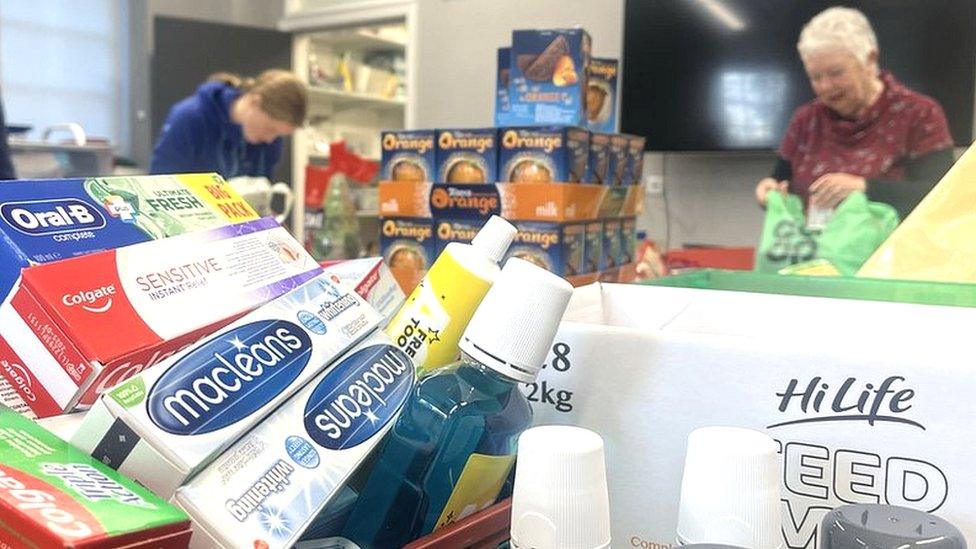People in Blaenau Ffestiniog fear Y Dref Werdd could close
- Published
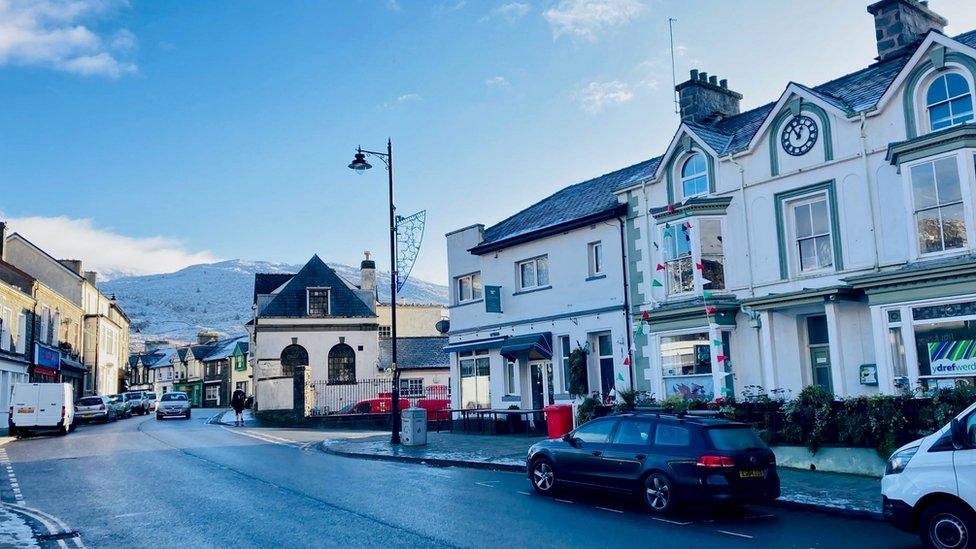
Y Dref Werdd is now calling for more financial stability in the long term, or it could have to close its doors
A community support group that has seen huge demand from local people asking for help during the cost of living crisis could be forced to close.
The lottery grant for Y Dref Werdd (The Green Town) in Blaenau Ffestiniog, Gwynedd, is ending and staff want funding to help the scheme continue.
One user said she would be "devastated" and "lost without them".
The Welsh government and Gwynedd council said they were doing what they could to support the project.
Staff at the project offer practical advice on energy bills, debt, benefit applications and run a food donation scheme.
They also provide health and wellbeing support and carry out conservation work in the area.
In 2019 the project received a four-year grant and has had money from Gwynedd council and Betsi Cadwaladr health board to continue running for another year.
But staff want a more sustainable model and believe the project should receive statutory funding.
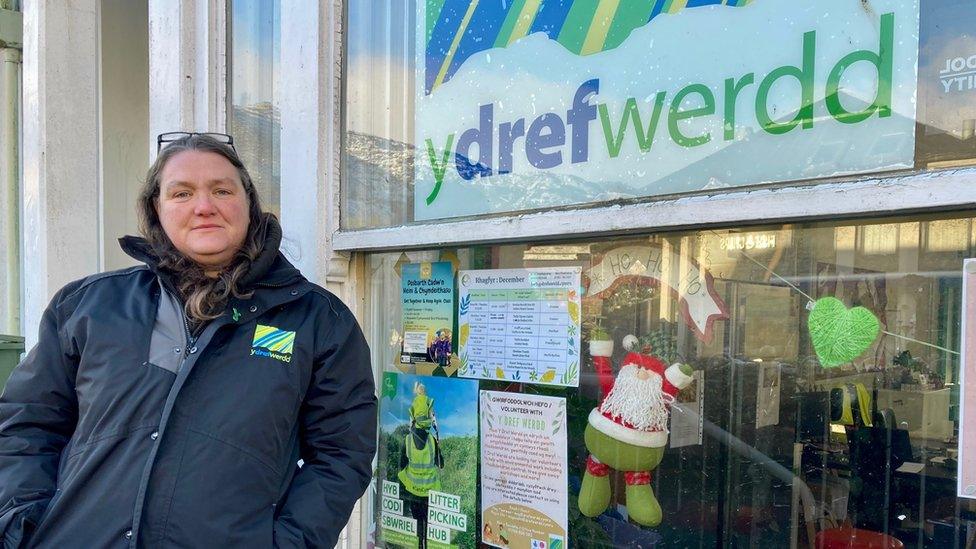
Rhian Williams says demand on the project's services has increased significantly
In the time between establishing the drop-in centre in Blaenau Ffestiniog in 2019 and last year, Y Dref Werdd has engaged with almost 3,500 people.
But wellbeing and project worker Rhian Williams said demand for its services had increased significantly recently.
"It's been very busy," she said. "We're helping people with foodbank referrals, fuel vouchers, all kinds of things to try and make their lives more comfortable."
Ms Williams said the loss to the community would be "immense" if the project had to close its doors because they felt more comfortable talking to them about often taboo subjects.
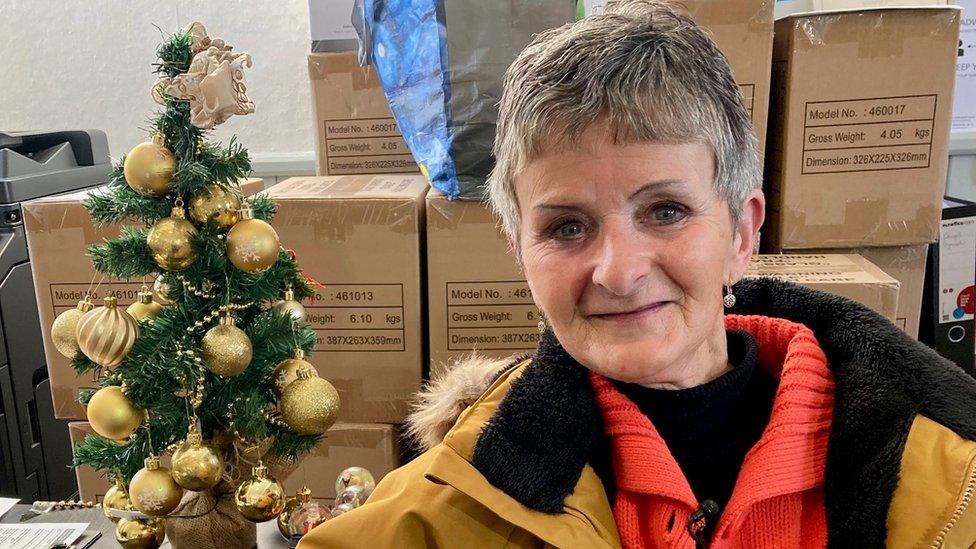
"I couldn't cope without them," says Norma Williams
Norma Williams has regularly sought help from Y Dref Werdd and particularly drew on their support when she was recovering from illness.
"If I get a form through or anything, like the gas went off, they were there for me. I couldn't cope without them," she said.
"When I got my mastectomy and they stopped my money, I came here stressed - and everything was sorted in a couple of weeks. But without them, I don't know where I'd be."
Diana Whitley said Y Dref Werdd had supported her with financial matters and helped improve her mental health.
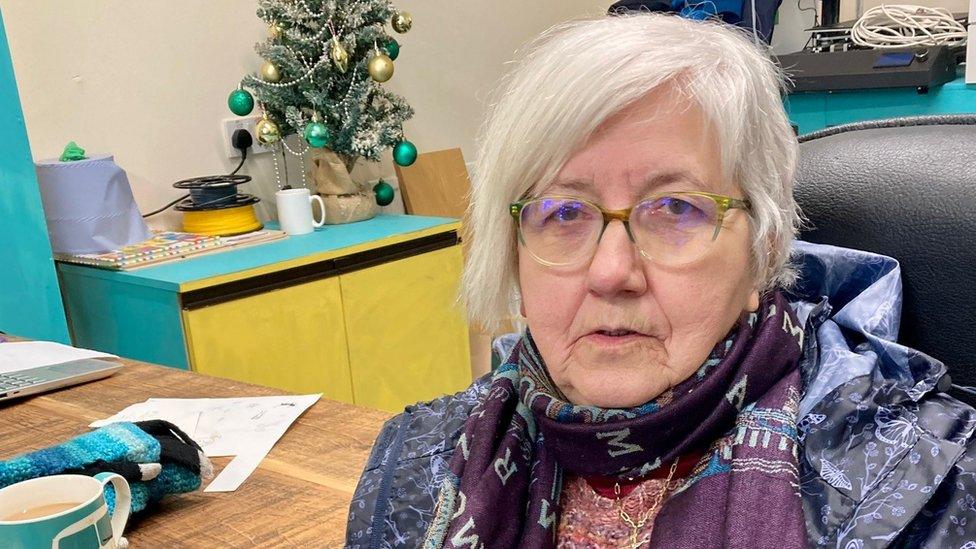
Diana Whitley says the project has benefited her mental health
"It's helped me get out and about, mix with people. We've been on outings, we've been doing yoga, art and just sitting in the woods talking and listening to the sounds of the woods," she said.
"I'd be lost without them. If the service finished, I'd be heartbroken personally, and a lot of people would be very upset."
Project manager Gwydion ap Wynn believes that part of the project's success is that staff are approachable and from the area themselves.
"We are just normal people, like the people who come here to receive the support that we give and it just works... we're here to improve the community and make sure people get help," he explained.
"You could argue that the work we do is statutory," he said, adding that funding needs to happen every year "so we don't have to scrabble around looking for grant funding".
"It's difficult to see why grant funding should fund it to be honest."
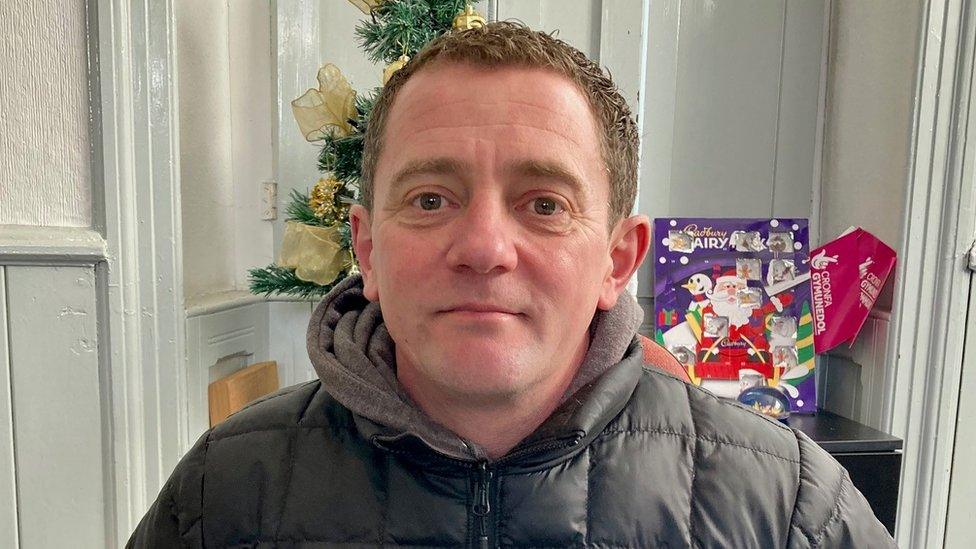
Mr Wynn thinks local and central government should fund the project every year
A spokesperson for Gwynedd council said it intended to arrange a meeting with its community support officer to explore what opportunities were available.
A Welsh government spokesperson said the cost of living crisis was having a "significant impact on sectors across society" and that the third sector was seeing "huge increases in the cost of heating, transport, food, and other equipment at the same time as increasing demands for their support".
The spokesperson added: "This is why we continue to invest in Third Sector Support Wales, comprising 19 County Voluntary Councils and WCVA, external [Wales Council for Voluntary Action], as they are able to provide grassroots organisations with a range of support including help with identifying appropriate funding sources."
Related topics
- Published24 December 2022
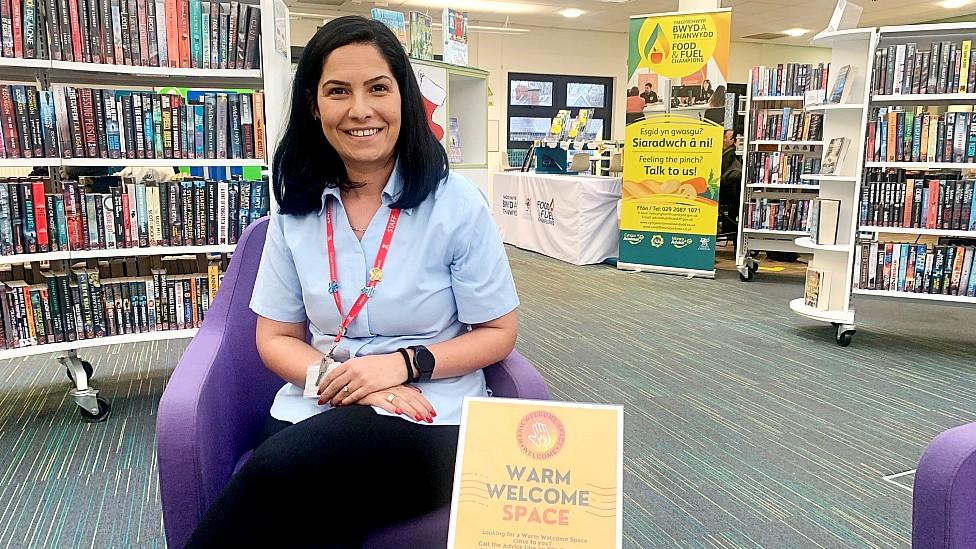
- Published28 December 2022

- Published27 November 2022
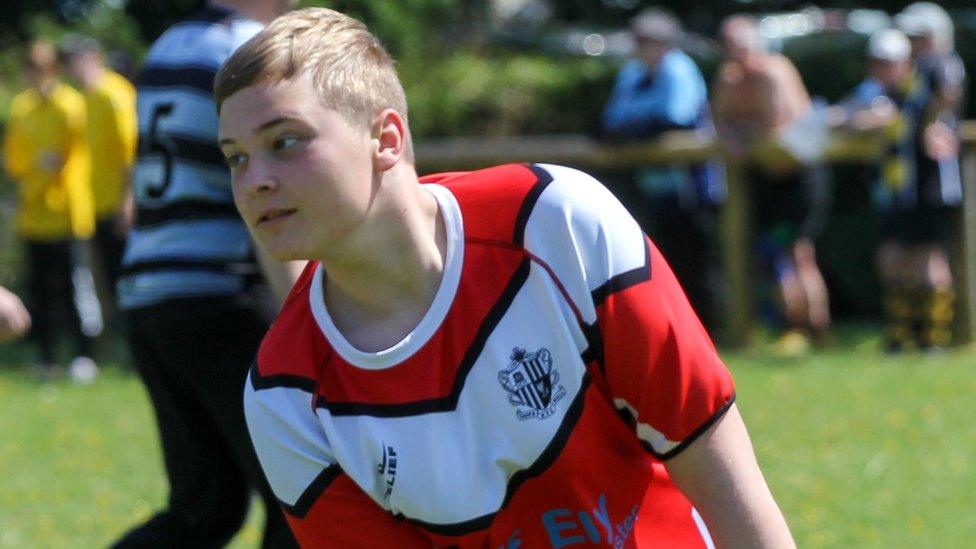
- Published27 December 2022
